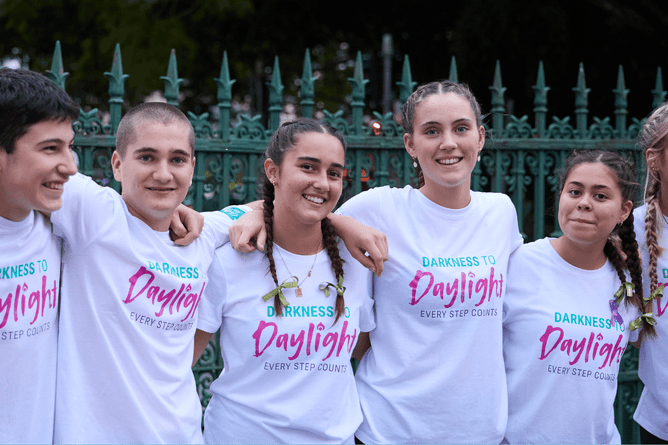Every child learns what respect looks like – not just from what they’re told, but from what they see; at home, at school, in their communities.
That’s why domestic and family violence (DFV) prevention doesn’t just start in adulthood. It starts much earlier – in the behaviours we model, the conversations we open up, and the environments we create.
The early impact of exposure
For many young Australians, the reality of DFV starts far too young:
An estimated 8 million Australians (41%) have experienced physical and/or sexual violence since the age of 15.
1 in 4 women and 1 in 8 men have experienced violence by an intimate partner or family member.
40% of 16 to 17-year-olds have experienced sexual harassment in a place of study.
These numbers aren’t just statistics. They’re signals – telling us that to make real change, we need to start early. We need to give young people the tools to understand what healthy relationships look like, how to spot red flags, and how to stand up against disrespect and abuse in all its forms.
Respect isn’t one conversation – it’s culture
Preventing domestic and family violence isn’t about one assembly, one talk, one program. It’s about building a culture – in schools, homes, and communities – where respect is expected, equality is normal, and violence is never excused.
That culture is shaped by what young people see every day. It’s shaped by:
A teacher who listens without judgment
A coach who calls out disrespect
A dad who shares the mental load
A friend who steps in when something doesn’t feel right
A school that takes a whole-of-community approach to wellbeing, equity and inclusion
In other words: real people, showing up consistently as role models.
The role of positive male role models
When dads model respectful behaviour, communicate openly, show emotional intelligence, and treat their partners, kids and peers with kindness, they’re not just parenting. They’re preventing violence. They’re showing the next generation what to expect – and what not to tolerate.
How education creates long-term change
At Challenge DV, we believe education is one of the most powerful tools for prevention. That’s why we work closely with schools and communities to deliver programs like:
Respectful relationships
A whole-of-school initiative designed to embed values of respect, inclusion and safety, across the curriculum, the staffroom, the playground and beyond. It teaches students how to identify healthy and unhealthy behaviours, set boundaries, build empathy, and call out disrespect.
Why we run
A community-driven campaign that connects young people to stories of allyship and action – encouraging them to be part of a generation that rejects violence and stands up for equality. It’s not just about running. It’s about running for something – respect, safety, inclusion, justice.
These programs don’t just react to harm. They prevent it – by equipping students with the language, confidence and understanding to build a better culture from the ground up.
Prevention isn’t passive
When we meet young people where they are – in classrooms, on sports fields, online – we create safe spaces for real conversations. We bring DFV out of the shadows. And we remind kids that they have the power to speak up, support their peers, and shape the future.
Because ending violence doesn’t start with punishment. It starts with prevention.
And prevention starts with respect.
Want to learn more or get involved?
Explore our Respectful Relationships program and other DFV prevention programs
Discover the Why We Run movement
Contact us to bring prevention programs to your school or organisation
Need support?
If you or someone you know needs help, these services are here for you:
1800RESPECT – 1800 737 732 | 1800respect.org.au
Kids Helpline (Young Adults 13–25) – 1800 55 1800 | kidshelpline.com.au
ReachOut – reachout.com
In an emergency, dial 000 for Police or Ambulance
More helplines can be found here.



